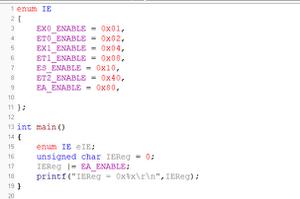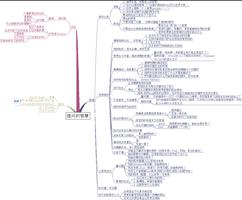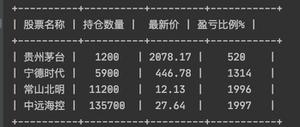大聊Python----装饰器

什么是装饰器?
装饰器其实和函数没啥区别,都是用def去定义的,其本质就是函数,而功能就是装饰其他的函数,说白了就是为其他函数提供附加功能
装饰器有什么作用?
比如你是一个公司的员工,你所写的程序里有100个函数,但是你所写的程序都已经上线运行了,突然有一天你的产品经理来找你,让你在咱们的APP上新增一段功能!那你说该怎么做这件事情?问题是你的程序都已经在运行了 ,不能修改你程序的源代码,否则会出现意想不到的效果!所以你想新增一项功能,但是不能修改你的源代码!那该怎么办呢?
装饰器对待被修饰的函数是完全透明的状态!也就是函数感觉不到装饰器的存在,装饰器没有动函数的源代码,也不影响函数的运行。
先看一下代码:
import timedef timmer(func): # 装饰器
def warpper(*args,**kwargs):
start_time = time.time() # 开始的时间
func()
stop_time = time.time() # 结束的时间
print('the fun run time is %s'%(stop_time - start_time))
return warpper
@timmer # 被装饰的函数
def test1():
time.sleep(3) # 延时3秒
print("in the test1")
test1()
结果展示:
实现装饰器知识储备
1、函数即“变量”
机制:
函数调用顺序:其他高级语言类似,Python 不允许在函数未声明之前,对其进行引用或者调用
错误示范:
def foo():print 'in the foo'
bar()
foo()
报错:
in the foo
Traceback (most recent call last):
File "<pyshell#13>", line 1, in <module>
foo()
File "<pyshell#12>", line 3, in foo
bar()
NameError: global name 'bar' is not defined
def foo():print 'foo'
bar()
foo()
def bar():
print 'bar'
报错:NameError: global name 'bar' is not defined
正确示范:(注意,python为解释执行,函数foo在调用前已经声明了bar和foo,所以bar和foo无顺序之分)
def bar():print 'in the bar'
def foo():
print 'in the foo'
bar()
foo()
def foo():
print 'in the foo'
bar()
def bar():
print 'in the bar'
foo()
2、高阶函数
a、就是把函数名当做实参传给另外一个函数(在不修改被装饰函数源代码的情况下为其增添功能)
示例:
import timedef bar():
time.sleep(3)
print("in the bar")
def test1(func):
start_time = time.time()
func()
stop_time = time.time()
print("the func run rime is %s"%(stop_time - start_time))
test1(bar)
结果:
b、返回值中包含函数名(不修改函数的调用方式)
示例:
import timedef bar():
time.sleep(3)
print("in the bar")
def test2(func):
print(func)
return func
bar = test2(bar)
print(bar) # run bar
效果:
<function bar at 0x00000000007C48C8>
<function bar at 0x00000000007C48C8>
3、嵌套函数
局部作用域和全局作用域的访问顺序
x=0def grandpa():
# x=1
def dad():
x=2
def son():
x=3
print(x)
son()
dad()
grandpa()
显示效果为:
3
高阶函数 + 嵌套函数 ==》 装饰器
先看个例子
import timedef timer(func):
def deco():
start_time = time.time()
func()
stop_time = time.time()
print("the func's run time is %s "%(stop_time - start_time))
return deco
@timer
def test1():
time.sleep(3)
print("the test1 is running!")
@timer
def test2():
time.sleep(3)
print("the test2 is running!")
test1()
test2()
结果显示:
the test1 is running!
the func's run time is 3.000171422958374
the test2 is running!
the func's run time is 3.000171661376953
若想给test2传递参数,如下例,该怎么做呢?
import timedef timer(func):
def deco():
start_time = time.time()
func()
stop_time = time.time()
print("the func's run time is %s "%(stop_time - start_time))
return deco
@timer
def test1():
time.sleep(3)
print("the test1 is running!")
@timer
def test2(name):
time.sleep(3)
print("the test2 is running!",name)
test1()
test2("alex")
通过执行,会出现下面的错误
意思是说,deco()缺少了一个元素!
那该怎么解决这个问题呢?
咱们先来捋顺下思路!
通过@timer可知test2() =timer(test2) = deco ,test2(name) = deco(name)
所以可以看出要给deco传递实参,所以做了下面
def timer(func):def deco(name):
start_time = time.time()
func(name)
stop_time = time.time()
print("the func's run time is %s "%(stop_time - start_time))
return deco
通过执行,会看到下面的结果!
这回好了,test2不出错了,反而test1报错了,那个该怎么办呢?
看下test1出错的原因是test1的deco缺少了一个实参,那么问题来了,test1该怎么处理呢?
其实很简单,使用*args,和**kwargs尽可以完美的解决这个问题!
现在来看看经过改正的程序
import timedef timer(func):
def deco(*args,**kwargs):
start_time = time.time()
func(*args,**kwargs)
stop_time = time.time()
print("the func's run time is %s "%(stop_time - start_time))
return deco
@timer
def test1():
time.sleep(3)
print("the test1 is running!")
@timer
def test2(name):
time.sleep(3)
print("the test2 is running!",name)
test1()
test2("alex")
结果显示:
the test1 is running!
the func's run time is 3.000171661376953
the test2 is running! alex
the func's run time is 3.000171422958374
装饰器之高潮
进入高潮之前,我们先来点前戏
先看下面的代码
import timeuser , passwd = "sutaoyu" , "sutaoyu01"
def auth(func):
def wrapper(*args,**kwargs):
username = input("Username").strip()
password = input("Password").strip()
if user == username and passwd == password:
print("\033[32;1mUser has passed authentication\033[0m")
func(*args,**kwargs)
else:
exit("\033[31;1mInvalid username and password\033[0m")
return wrapper
@auth
def index():
print("welcome to index Page!")
@auth
def home():
print("welcome to index Home!")
@auth
def bbs():
print("welcome to index BBS!")
index()
home()
bbs()
其输出的结果为:
输入正确时:
输入错误时:
现在当我们把前面的代码稍微改一下,装饰器代码不动,只改变下面两个地方
def index():print("welcome to index Page!")
return "Page"
print(index())
此时看输出的结果:
会发现无结果并为None,那是因为什么呢?
因为装饰器里的wrapper没有返回值所以,我们给他提供返回值即可!
def auth(func):def wrapper(*args,**kwargs):
username = input("Username:").strip()
password = input("Password:").strip()
if user == username and passwd == password:
print("\033[32;1mUser has passed authentication\033[0m")
return func(*args,**kwargs)
else:
exit("\033[31;1mInvalid username and password\033[0m")
return wrapper
运行下程序,看看结果
可以看出,问题已经解决!
现在高潮部分即将来临:
我能不能让我的home在认证的时候用本地的认证,但是bbs认证的时候用远程的ldap?
答案是肯定的!
先看下代码!
import timeuser , passwd = "123" , "123"
def auth(auth_type):
print("auth_typr:",auth_type)
def outer_wrapper(func):
def wrapper(*args,**kwargs):
print("wrapper func args:",*args,**kwargs)
if auth_type == "local":
username = input("Username:").strip()
password = input("Password:").strip()
if user == username and passwd == password:
print("\033[32;1mUser has passed authentication\033[0m")
func(*args,**kwargs)
else:
exit("\033[31;1mInvalid username and password\033[0m")
elif auth_type == "ldap":
print("搞毛啊!!!!!")
return wrapper
return outer_wrapper
# @auth
def index():
print("welcome to Index page!")
return "Page"
@auth(auth_type = "local")
def home():
print("welcome to Home page!")
@auth(auth_type = "ldap")
def bbs():
print("welcome to BBS page!")
index()
home()
bbs()
运行的结果为:
可以看出,我们的认真已经成功!
以上是 大聊Python----装饰器 的全部内容, 来源链接: utcz.com/z/388263.html







